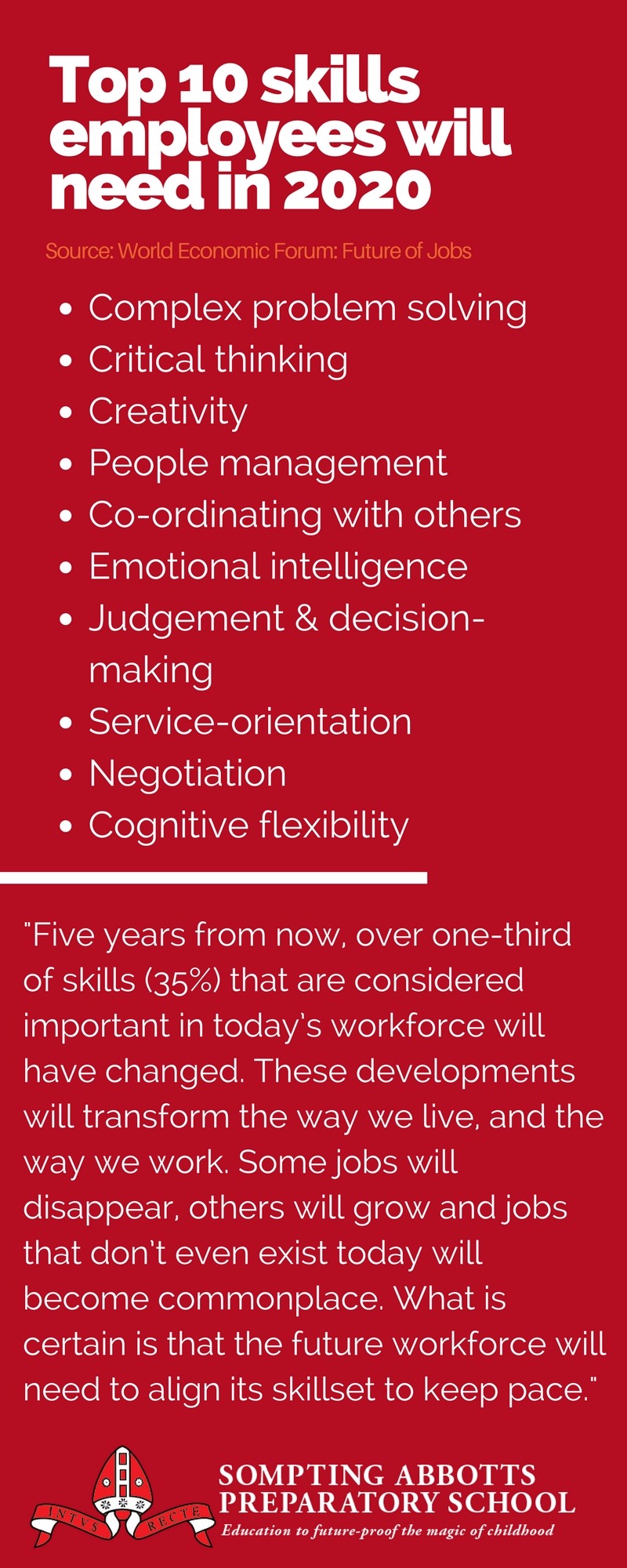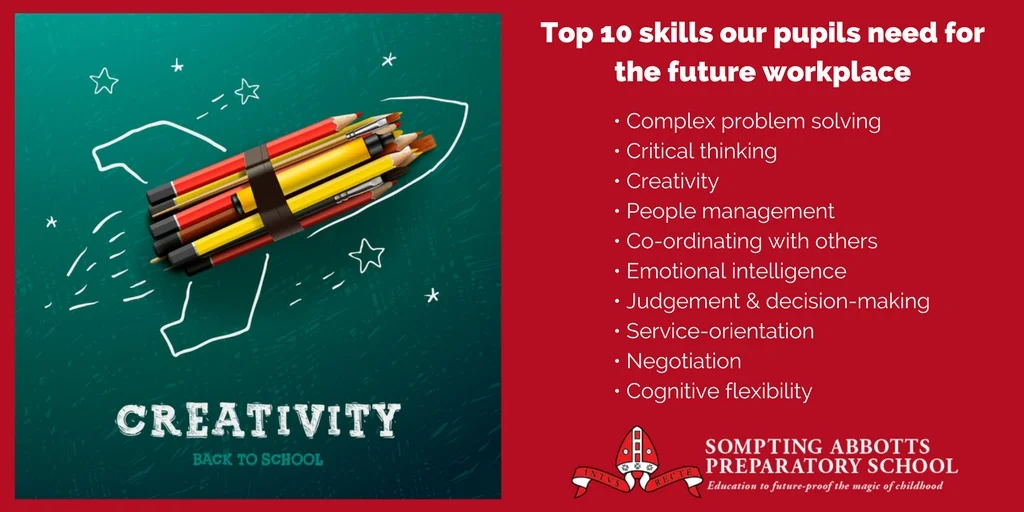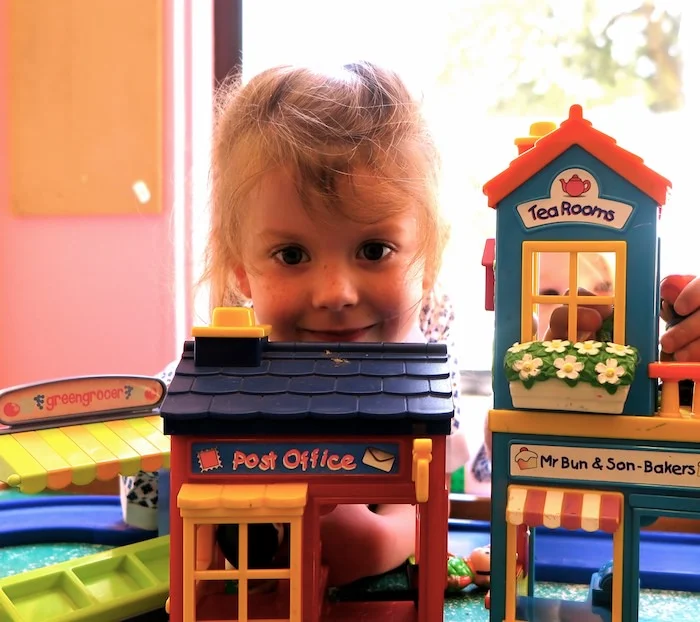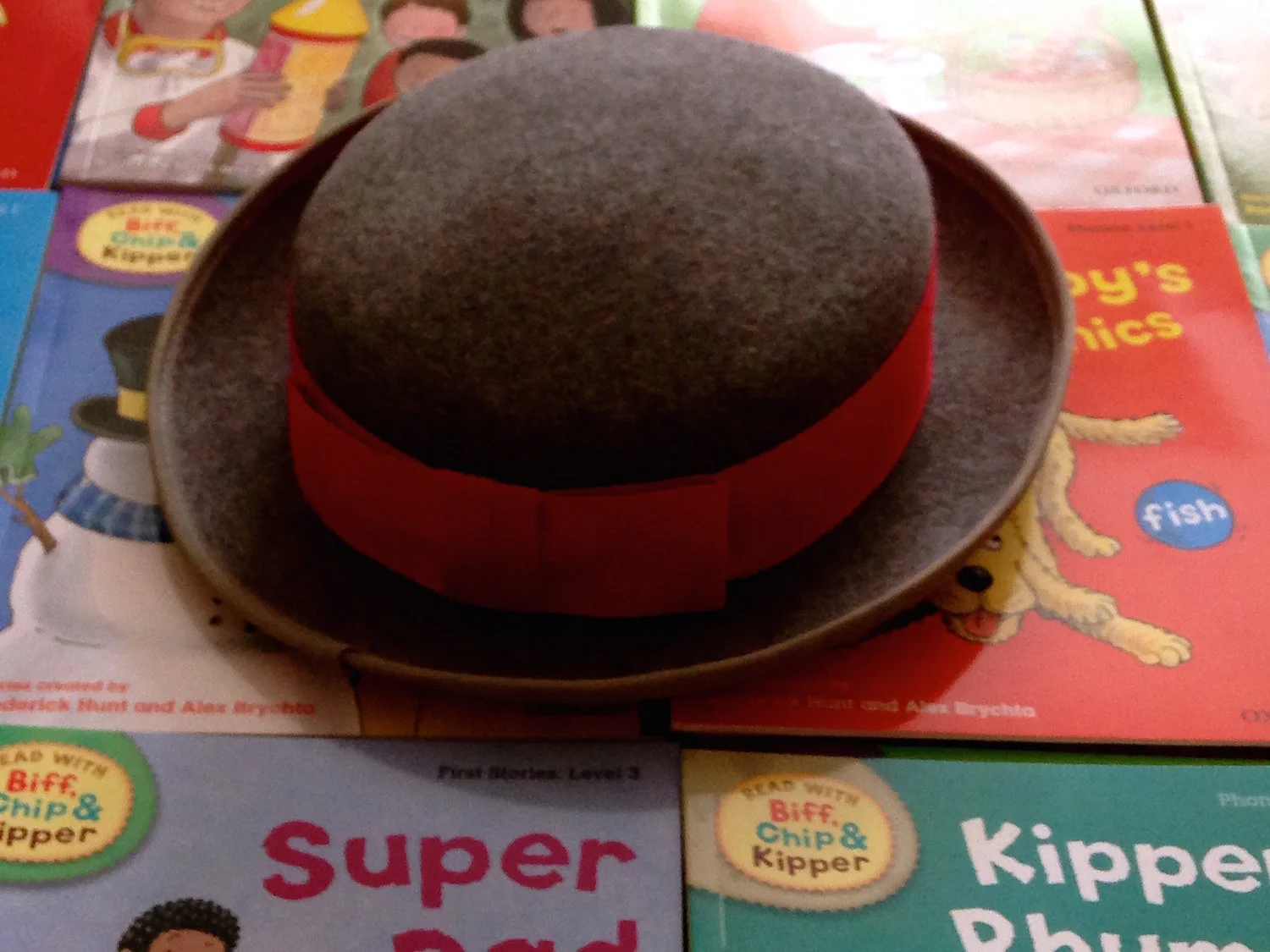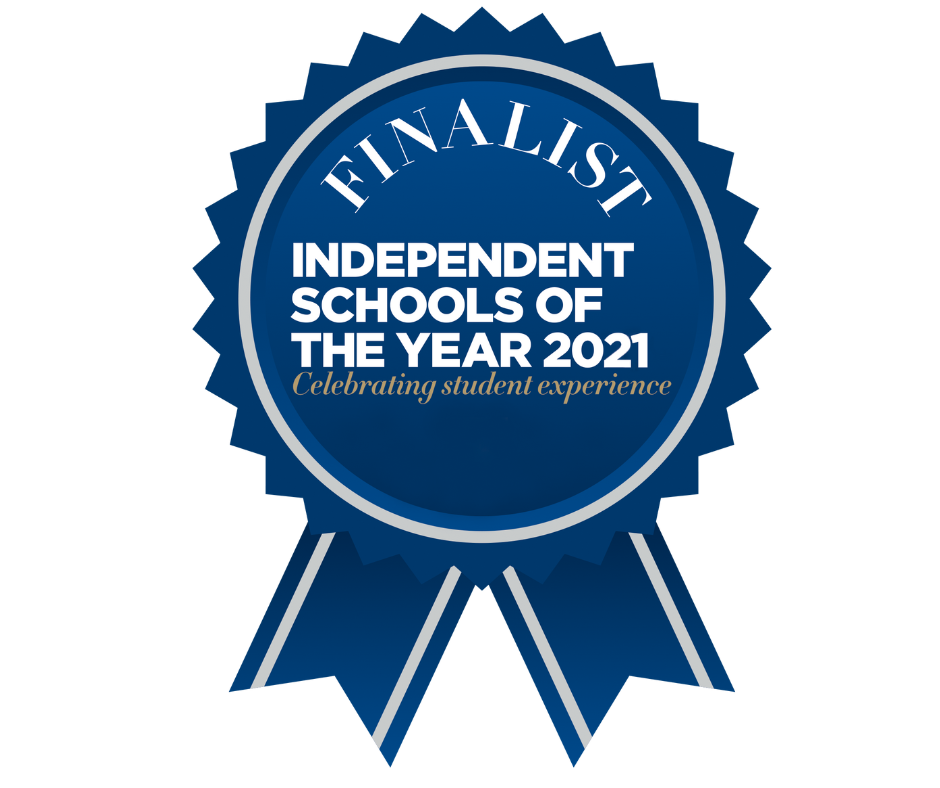How the best preparatory schools are honing children's 'sharp skills' for the workplace ahead
/Mark Brotherton is currently Director of Education with the IAPS and was IAPS Chairman 2014-15 and his career spans 21 years in the state and independent sectors. Who better to ask how today's prep schools can best prepare pupils to thrive in the workplace ahead?
What distinguishes a preparatory school education in your view?
A great preparatory school education offers a depth and breadth of curriculum that's bound together with strong values. It's delivered in an environment that allows children to feel safe, grow confident and become enquiring learners.
A focus on pastoral care, health and wellbeing is key to prep schools’ holistic success too. Many focus their values around a spiritual and moral compass. This gives an important grounding for children.
The best preparatory schools allow children to discover talents, passions and interests. And then help them develop them. Great prep schools also employ staff that are passionate, hardworking and caring.
Prep schools tend to prioritise the development of ‘character’ and ‘soft skills’. What skills do you think children will need most in the workplace ahead?
Many jobs our children will be applying for haven’t yet been invented! But I do believe ‘soft skills’ will be key to help them succeed in this new landscape.
It’s abilities such as leadership, collaboration, problem solving, creativity and analytical thinking that children will need in the future professional world. As well as having a good understanding of the role of ethics and accountability.
The term ‘soft skills’ doesn’t do these skills justice. They’re ‘sharp skills’. Self-confidence, teamwork and communication skills are instilled by most prep schools. These traits have always been and will continue to be critical to our children’s success ahead.
There’s a TED talk (by Logan LaPlante). It says parents often ask their children: “What do you want to be when you grow up?” expecting answers such as astronaut or neuro-surgeon. But the speaker – a child – says: “Most kids just want to be happy”. Do you agree and how can prep schools make this possible?
What’s the definition of being happy? Cash-rich, winning the lottery and living on good fortune? Or cash-poor but fulfilled by being a good, active and constructive citizen? Being happy is a state of being that I’m sure most people would wish for. Life throws up many challenges and I wonder if we should be using the word ‘fulfilled’ rather than ‘happy’?
This comes down to how prep schools equip their pupils. Many do this by offering truly innovative curriculums. They are curriculums that focus on teaching children strategies. Strategies for learning, for overcoming ‘failure’, for telling and speaking up, for working hard, for being safe, for making friends and for handling conflict, and for preparing them for the next stage of their education and life.
Intelligent schools teach a child how to be independent, creative and personable. They imbue strong moral values. That’s how prep schools equip pupils to be ‘fulfilled’ or ‘happy’.
“Many jobs our children will be applying for haven’t yet been invented! But I do believe ‘soft skills’ will be key to help them succeed in this new landscape. ”
Investing in a private school education is tough for many families. Why, in your opinion, is it worth it?
Everything I’ve said above describes a great prep school education. It’s a value-driven education. One designed to prepare children well to cope with and meet the demands of the next stage of their lives. But for parents there’s a lot of value too. It's value provided by the fabulous wraparound care and extra-curricular activities that many prep schools offer. These things make life easier for hard-working parents.
The best schools are particularly good at fostering an inter-school community spirit that parents want to be part of. They want to join the PTA; to have a social life linked to the school. It’s part of how a school builds up parental loyalty and gives parents a feel-good factor.
Given the choice, how do parents best plan investment in independent education? Do they invest early in preparatory education (3–13 years)? Or invest later in preparation for GCSE and A-level?
Given that I’m a prep school advocate, having been a prep/junior school headmaster, naturally I would say start young with prep school! That’s because I think strong foundations help develop a child and provide the launch pad to flourish from an early age. (See this research about the importance of early years education for a child's future achievement results).
This is a difficult question though. From an economic point of view, fees are lower at prep school stage compared to senior school stage. But I understand that young parents are more financially vulnerable. So understandably they may defer the decision for independent education. If a prep school education is an ambition then early financial planning is a good idea. But, many schools do offer bursary schemes. I would encourage parents to enquire with the school to see if they would be eligible.
“It’s abilities such as leadership, collaboration, problem solving, creativity and analytical thinking that children will need in the future professional world. As well as having a good understanding of the role of ethics and accountability. The term ‘soft skills’ doesn’t do these skills justice. They’re ‘sharp skills’. Self-confidence, teamwork and communication skills are instilled by most prep schools. These traits have always been and will continue to be critical to our children’s success ahead.”
How do you at the IAPS see prep schools faring overall in the current economic environment in the UK?
There will always be demand for high quality education so I’m confident our schools will continue to flourish.
IAPS works closely with government to promote and defend the sector. In particular, we work with the ISC to ensure we keep our independence from political interference. Much of what prep schools do – such as curriculum provision – is unfettered by the Government. We defend that freedom keenly while naturally meeting important legislative requirements such as Safeguarding, Child Protection and Health and Saftey.
We believe our prep schools educate our children better than anybody and that the Government could learn much from us. You only need to look at the growing success of IAPS and Brirish/International schools overseas to understand that our curriculum is a much desired export, and seen as a gold standard across many parts of the world.
Prep schools all work to a business model in essence. To succeed today, what should prep schools prioritise?
Every prep school in the current competitive environment needs an excellent grasp on the financial opportunities and constraints they face. They should carry out regular risk assessments.
Do they need a business manager? Many prep schools do today. That decision depends on the talents and time available of the bursar, the staff and governors. Either way, a keen sense of business is crucial. Prep (and indeed all) schools are increasingly burdened by regulatory matters. These incur costs and school managements have to consider if they can ‘do it all’.
How can each prep school achieve a competitive edge?
Preparatory schools needs to understand their local markets, catchment areas and prospective parent base. Excellent professional market research can be invaluable for this. They should pinpoint their own USP, whether it’s academic, sporting, all rounder status, creative or pastoral. They should drill down to the DNA of what is it that makes the school successful and loved. Then market this.
Schools that have hit a patch where they’re facing difficulties should seek to find out why. Has the competition changed? Why are parents are choosing other schools? Then they should look at what they might change in their offering. They could offer school transport from outlying areas, more wraparound care, summer school provision or set up nurseries, as examples.
And I'd advise, don’t make changes too late. Struggling schools should look to evolve and seek new models. And perhaps think how they might help parents afford fees with added value or bursaries. It's more important today to be customer-savvy. Schools are increasingly accountable. It pays dividends to have a coherent whole school strategy. One that promotes engagement and communication with all stakeholders – employees and parents.
“What’s the definition of being happy? Cash-rich, winning the lottery and living on good fortune? Or cash-poor but fulfilled by being a good, active and constructive citizen? Being happy is a state of being that I’m sure most people would wish for. I wonder if we should be using the word ‘fulfilled’ rather than ‘happy’? Intelligent schools teach a child how to be independent, creative and personable. They imbue strong moral values. That’s how prep schools equip pupils to be ‘fulfilled’ or ‘happy’. ”
The Leading People 2016 report on the achievement rate by pupils from independent schools showed this. 74% of High Court judges, 51% of print journalists, 61% of doctors attended independent schools. What would you attribute it to?
I’m often asked this and I’d really dispute it’s all to do with ‘old boys’ networks’! The ISC website, Schools Together, shows virtually all independent schools engage in significant partnership work within their community and with their local state schools bringing benefits to all involved.
One thing that prep schools, and indeed all independent schools do, is promote the core value of service to others. The Service Leadership model is one many schools advocate to their pupils, and the sector prides itself on encouraging its pupils to serve its school, and its community. That's whether it’s through raising money for charity, engaging with the Duke of Edinburgh Award or Combined Cadet Force, working with state schools or being active in the community.
So why do we find it strange that many pupils wish to fulfil their responsibilities to serve others? And that they go on to serve in service leadership roles is therefore no surprise to me - MPs, judges, doctors and military personnel would seem natural career options for many of our pupils.
Sutton Trust Leading People 2016
Sompting Abbotts Preparatory School is an independent school in West Sussex and an IAPS member school.
Mark Brotherton, IAPS
During his 21 years in schools, Mark Brotherton has worked in both the state and independent sectors. He was Headmaster for Giggleswick Junior School from 2007 – 2015, obtaining ‘outstanding’ grades in its inspection report. During his Headship, the school trebled pupil numbers and was nominated for the Independent School Awards for Strategic Initiative (2010) and Community Initiative (2011). He became a governor of a local state primary, serving as an education adviser (2013 – 2015). In 2014, he became Executive Headmaster overseeing Giggleswick Junior and Malsis Preparatory schools.
Mark served as District Rep for the Independent Association of Prep Schools (IAPS), sitting on the National Council (2009 – 2012). He was elected Chairman of the IAPS 2014 – 2015 and became a Board Director of the Independent Schools Council (ISC). Mark became IAPS Director of Education in September 2015, an association that serves over 670 independent prep and junior schools across the world.



